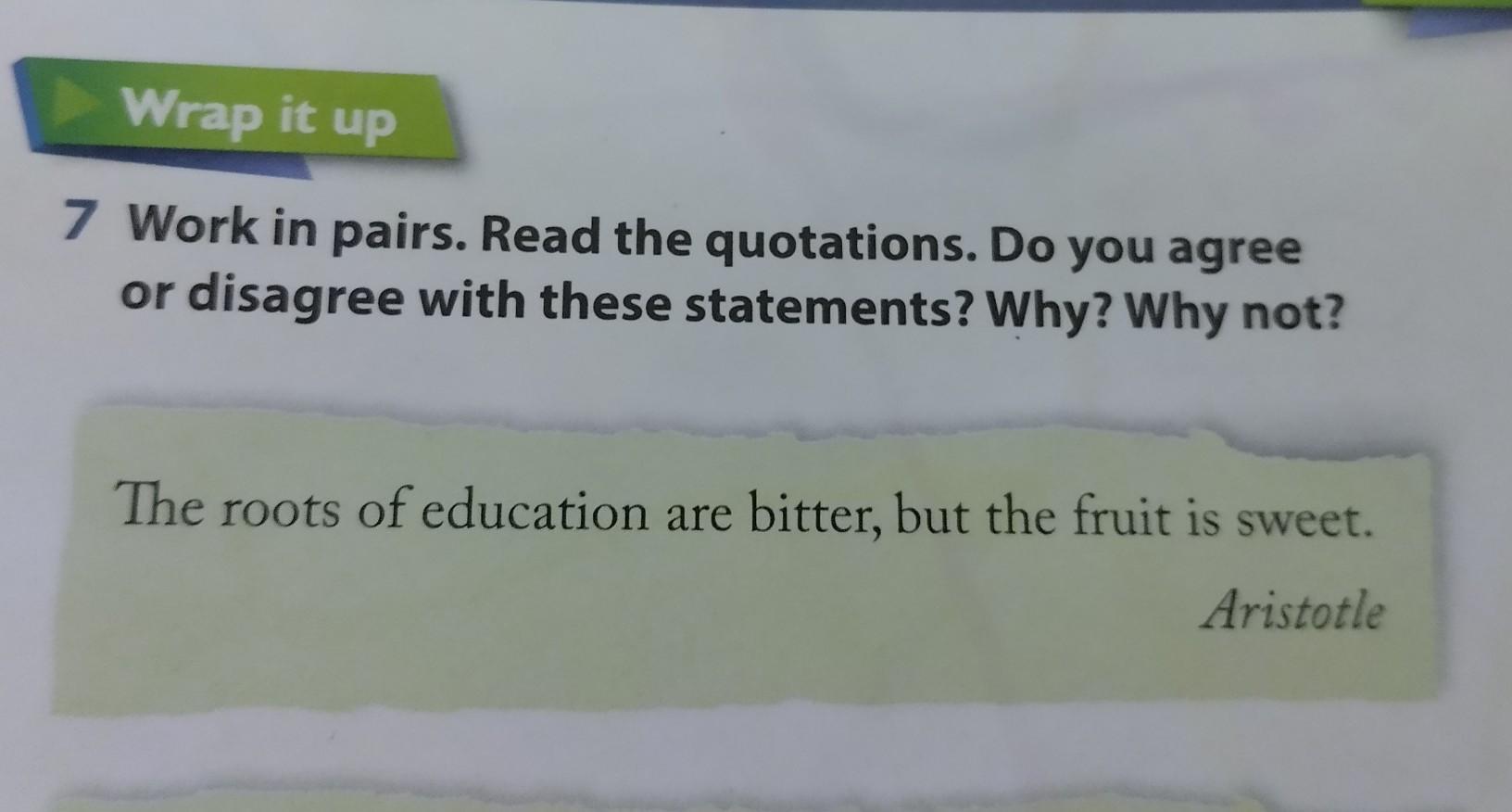!!!ТЕРМІНОВО ДАЮ 50 БАЛІВ!!!. ПОТРІБНО НАПИСАТИ КОРОТКИЙ ТВІР АНГЛІЙСЬКОЮ(15 речень). Що означає цей вислів та як я його зрозумів.

Ответы на вопрос
"The roots of education are bitter, but the fruit is sweet" suggests that the initial stages of learning can be challenging and demanding. It emphasizes that the foundation of education may involve hardships and difficulties.
This expression implies that the challenges faced in the early stages of education are comparable to the bitterness of roots. However, as one progresses in their learning journey, the rewards and benefits become evident, akin to the sweetness of the fruit.
In my understanding, this saying conveys the idea that the struggles and sacrifices made in the pursuit of education are worthwhile in the end. It encourages individuals to endure the initial challenges, knowing that the ultimate outcome will be rewarding and fulfilling.
The metaphorical use of "roots" symbolizes the foundational aspects of education, highlighting the importance of a strong and solid base for future growth and success.
It also implies that the sweetness of the "fruit" refers to the positive outcomes, knowledge gained, and personal development achieved through the educational process.
This expression can be seen as motivational, inspiring individuals to persevere through the difficulties of learning, with the promise of a satisfying and beneficial outcome awaiting them.
Overall, the saying underscores the transformative power of education and the long-term advantages that arise from overcoming the initial hardships in the learning journey.
I think that this proverb means that learning is hard, but using the knowledge you have is easier than thinking how to do something. For example, you have a room and some wallpaper. You need to figure out how much wallpaper will be needed to cover all the walls. How? By finding out the area. If you know how to do it, this will be easy. But not knowing makes it 10 times harder.
Aristotle was right. The proverb is true, and it can even become a stimulus to learn and to use your knoweledge. Also, it helps when you want to form a new habit. At first, it's hard, but it gets easier over time. After that, you don't have to think a lot. You just have it in your head.
I think it's a true and a wise saying of Aristotle. It has helped a lot of people, at it continues to be a stimulus for lots of students.